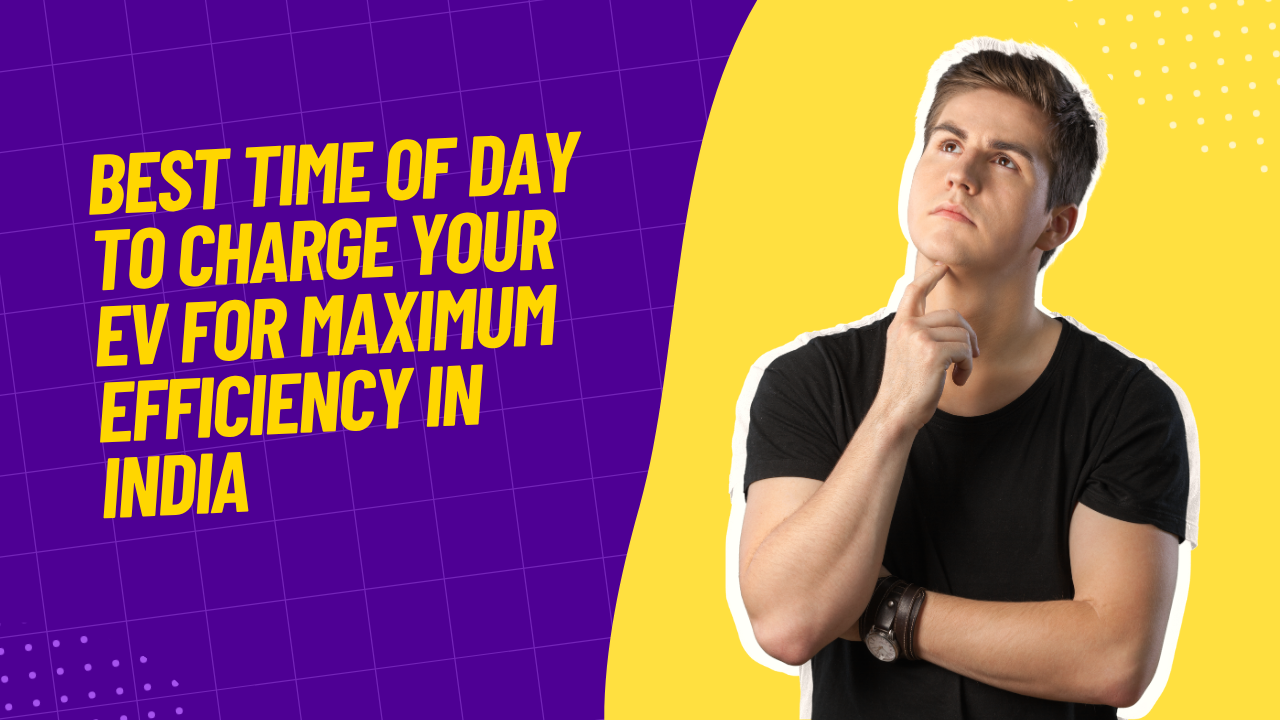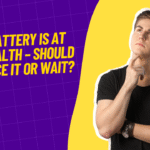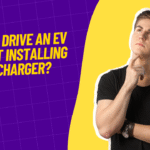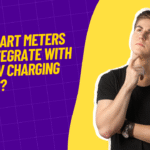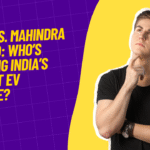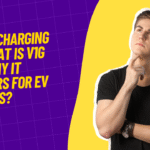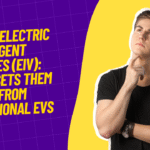As the electric vehicle (EV) revolution accelerates in India, a critical question arises for every EV owner: “When is the best time to charge my electric vehicle?” While most new EV owners focus on battery size, range, or charger types, timing is a lesser-known but incredibly important factor.
The time of day you plug in your EV doesn’t just affect your electricity bill — it also impacts:
- Battery health and lifespan
- Charging speed
- Overall vehicle performance
- Grid efficiency and load
In this comprehensive guide, we’ll explore the best time of day to charge your EV in India, backed by battery science, Indian electricity tariffs, real-world use cases, and smart charging practices for 2025.
1. Understanding India’s Electricity Tariff System for EVs
Before choosing the ideal charging window, you need to understand how electricity pricing works in India. Most Indian homes are billed under Time-of-Day (ToD) or slab-based tariffs, depending on the state and provider.
Key factors:
- Off-Peak Hours: Electricity rates are lowest during late night to early morning (usually 10 PM to 6 AM).
- Peak Hours: Power is costliest between 5 PM and 10 PM, especially during summer.
- Solar/Daytime Hours: Midday power (11 AM to 3 PM) can be cleaner if sourced from solar-heavy grids but often isn’t cheaper.
Best States Offering EV-Specific Tariffs:
- Delhi (BYPL, TPDDL): Off-peak EV rates available
- Maharashtra (MSEDCL): Time-of-day-based charging options
- Tamil Nadu, Karnataka, and Gujarat: Have introduced EV-friendly tariffs
Always check your local DISCOM’s EV tariff policy for up-to-date rates.
2. Best Time to Charge EVs in India: 10 PM to 6 AM
The golden charging window for most Indian EV users is between 10 PM and 6 AM. Here’s why this timeframe is ideal:
Advantages:
- Lower electricity rates during off-peak hours
- Cooler ambient temperatures reduce battery stress
- Less grid congestion ensures stable voltage and faster charging
- No productivity loss since charging happens overnight
3. Worst Time to Charge: 5 PM to 10 PM
This evening window is often the least efficient and most expensive time to charge your EV.
Disadvantages:
- High energy rates due to peak demand
- Increased thermal stress on batteries during evening heat
- Slower charging speeds due to local grid congestion
Avoid charging during this window unless it’s an emergency.
4. What About Charging During the Day (10 AM – 4 PM)?
Charging during the day has both pros and cons:
Pros:
- Ideal if you have a rooftop solar system
- States like Gujarat or Rajasthan may supply clean solar energy
Cons:
- Electricity rates may still be higher than night-time
- Ambient heat (especially from noon to 3 PM) can cause battery degradation
Verdict:
Daytime charging is great only if you’re using solar power or receive special mid-day EV incentives.
5. Fast Charging vs. Home Charging: Does Time Matter for Both?
Home Charging:
- Time-of-day greatly affects your cost and battery health
- Best to use scheduled slow charging overnight
DC Fast Charging:
- Best used early morning or late evening to avoid heat-related stress
- Avoid repeated fast charging during high temperatures or peak hours
6. How Time of Charging Affects Battery Life
EV batteries are sensitive to:
- Heat
- Charging to 100 percent regularly
- Fast charging cycles
Charging during cooler hours (10 PM – 6 AM) reduces:
- Thermal load
- Battery degradation
- Risk of voltage fluctuation
Avoid charging daily to 100 percent unless you’re preparing for a long journey. Most manufacturers recommend staying within a 20 to 80 percent charge range.
7. Use Smart Charging Features in 2025 EVs
Modern EVs come with built-in software features designed to automate efficient charging:
- Scheduled Charging: Set your car to begin charging only during off-peak hours
- Charging Limit Settings: Prevent the battery from reaching full charge if not needed
- Remote Monitoring: Start or stop charging remotely using your mobile app
These tools help balance convenience with long-term battery protection.
8. State-Wise EV Tariff Examples (2025)
| State | Off-Peak Rate (₹/kWh) | Peak Rate (₹/kWh) | EV Tariff Plans Available |
|---|---|---|---|
| Delhi (BYPL) | 4.50 | 7.00 | Yes |
| Maharashtra | 5.00 | 7.50 | Yes (with ToD meters) |
| Tamil Nadu | 4.00 | 6.50 | Yes |
| Gujarat | 4.20 | 6.80 | Yes |
| Karnataka | 4.80 | 7.10 | Yes |
Tariffs are subject to change; check your DISCOM website for updates.
9. Charging at Apartments or Shared Parking? Plan It Right
If you reside in a high-rise or gated society with shared EV chargers:
- Use scheduled charging slots between midnight and 6 AM
- Avoid plugging in during peak hours to prevent transformer overload
- Encourage your society to adopt smart energy meters or solar EV charging
10. Charging Tips Summary: Dos and Don’ts
Do:
- Charge between 10 PM – 6 AM
- Enable scheduled or smart charging
- Maintain charge between 20% and 80%
- Use slow charging when possible
Don’t:
- Charge daily to 100% unless necessary
- Let your battery reach 0% regularly
- Charge during peak electricity hours
- Use fast chargers daily for routine top-ups
Real-World Example: Charging a Tata Nexon EV
Let’s take a Tata Nexon EV user who drives 40–50 km per day:
- Requires a top-up every 2–3 days
- Night charging (10 PM – 6 AM) @ ₹4.50/kWh
- Full charge costs ~₹135 (30 kWh x ₹4.50)
- Peak hour charging @ ₹7.00/kWh = ₹210
Monthly savings: ₹1000–₹1200 just by charging at night.
Frequently Asked Questions (FAQs)
1. Can I charge my EV overnight without damage?
Yes. Modern EVs have automatic cutoffs once charging completes. Use scheduled charging or set a limit (e.g., 80 percent).
2. What happens if I charge during the hottest part of the day?
Battery performance and longevity may be impacted due to excess heat. Charging during extreme ambient heat should be avoided.
3. Is there a difference in cost if I charge my EV at noon vs. midnight?
Yes. Depending on your state and DISCOM, night rates can be 25 to 40 percent cheaper than daytime rates.
4. My car doesn’t have scheduled charging. What can I do?
Use a smart plug or timer-based switch to control when the charger powers on or off.
5. Is fast charging worse at certain times?
Yes. Avoid fast charging in hot afternoons (12 PM to 3 PM). Early morning or late evening is safer for battery health.
Final Thoughts: Charge Smart, Drive Efficient
Charging time is no longer just a technical detail — it’s a cost-saving and battery-saving strategy. With rising EV adoption in India and smarter electricity infrastructure, knowing when to plug in is just as important as how.
For most EV owners, the best time to charge your EV in India is between 10 PM and 6 AM. Combined with scheduled charging, rooftop solar, and careful driving habits, you’ll enjoy greater efficiency, longer range, and longer battery life.
Take control of your charging behavior in 2025, and make every unit of electricity count.
